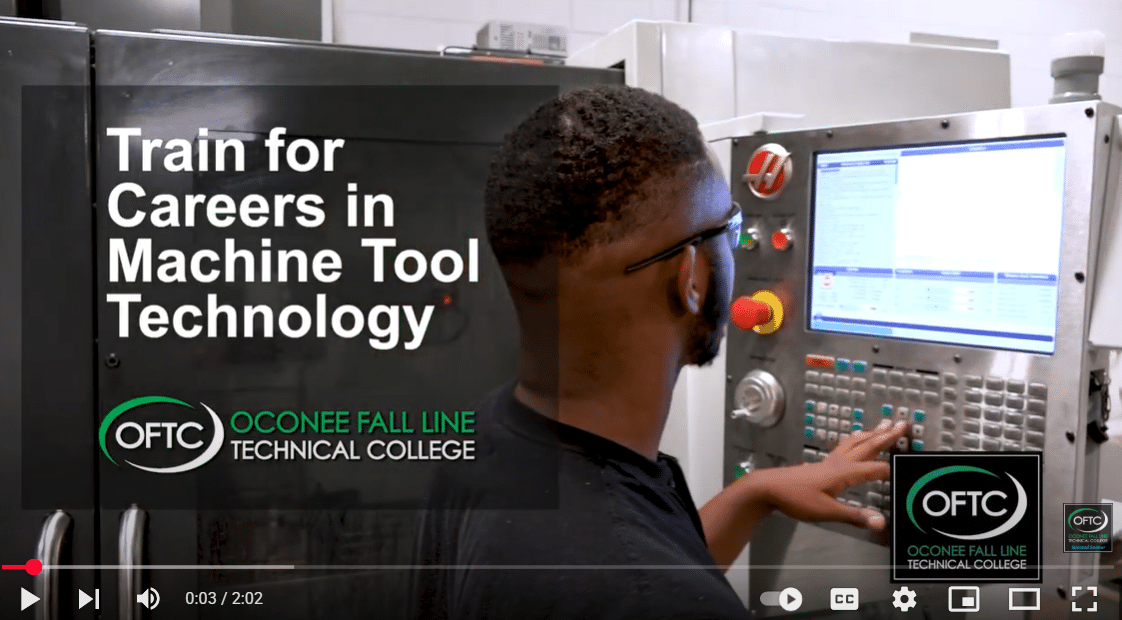Machine Tool Technology
settingsThere is a vital need for trained individuals to keep industry machinery in good working order and to produce the parts necessary to keep industry moving.
Overview
OFTC’s Machine Tool Technology program equips students with the precision skills that manufacturers rely on. Through hands-on training, students learn how to safely and accurately use hand tools, read blueprints, and operate manual lathes and mills.
The program also covers heat treatment, surface grinding, and introduces advanced techniques in CNC lathe and mill operation, CAD/CAM systems, and programming—building a solid foundation for high-demand careers in modern manufacturing.
Programs in Machine Tool Technology can be completed in as little as 1 to 6 semesters.
Programs
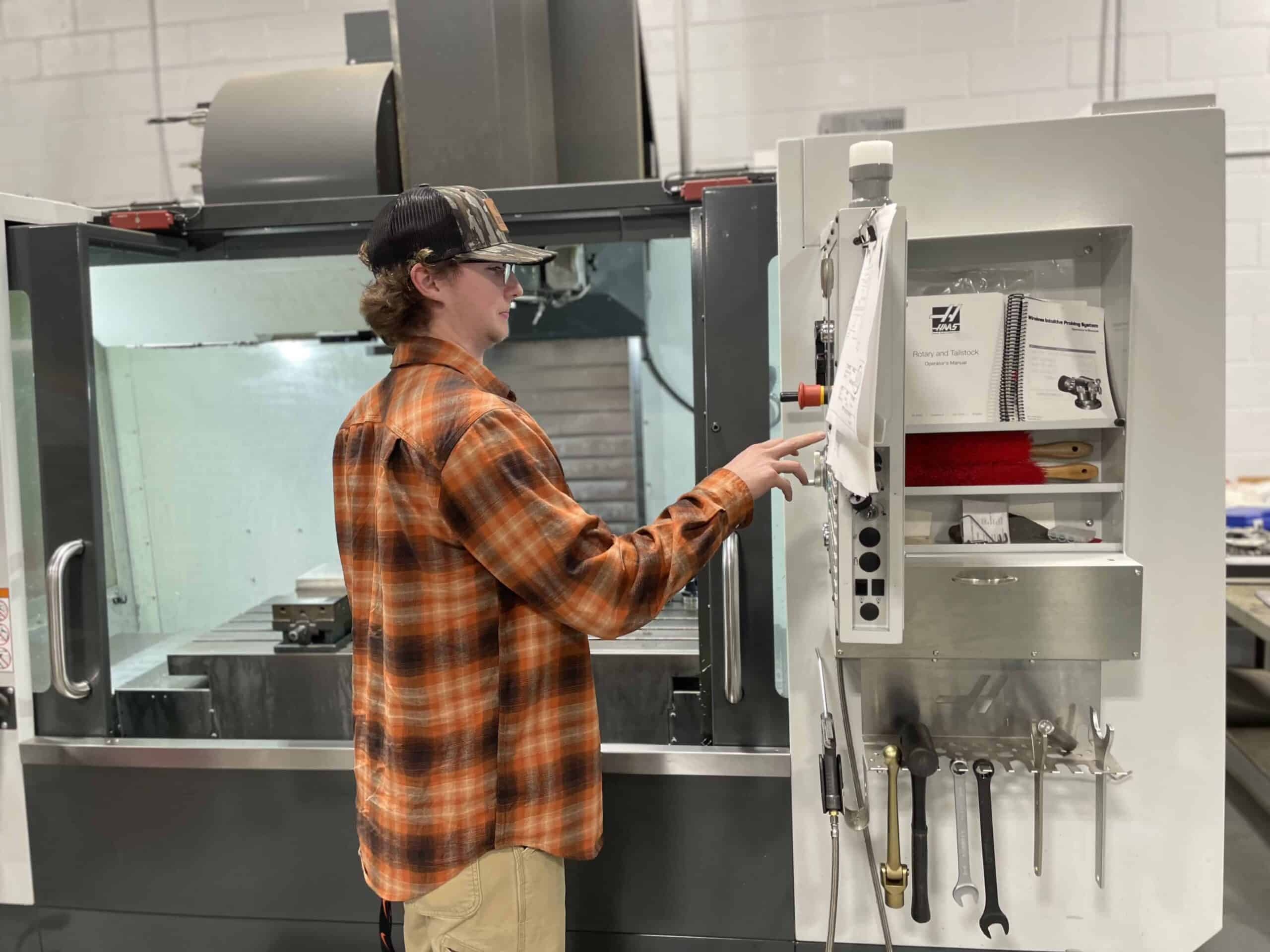
Basic CNC Technician Technical Certificate of Credit
Machine Tool Technology
Certificate of Credit
3 Semesters
The Basic CNC Technician Certificate of Credit program will provide training for graduates to gain employment as entry level CNC machine tool technicians. This TCC will offer introductory courses in CNC fundamentals, CNC mill and lathe manual programming, as well as the practical applications for CNC. Additionally, this TCC will ensure a basic foundation knowledge is present before any CNC curriculum is undertaken by requiring students to successfully complete coursework in both Machine Tool Math and Blueprint for Machine Tool. The program emphasizes a combination of CNC theory and practical application necessary for gainful employment.
The HOPE Career Grant is available to HOPE Grant-qualified students who enroll in select majors specifically aligned with industries in which there are more jobs available in Georgia than there are skilled workers to fill them. Learn More
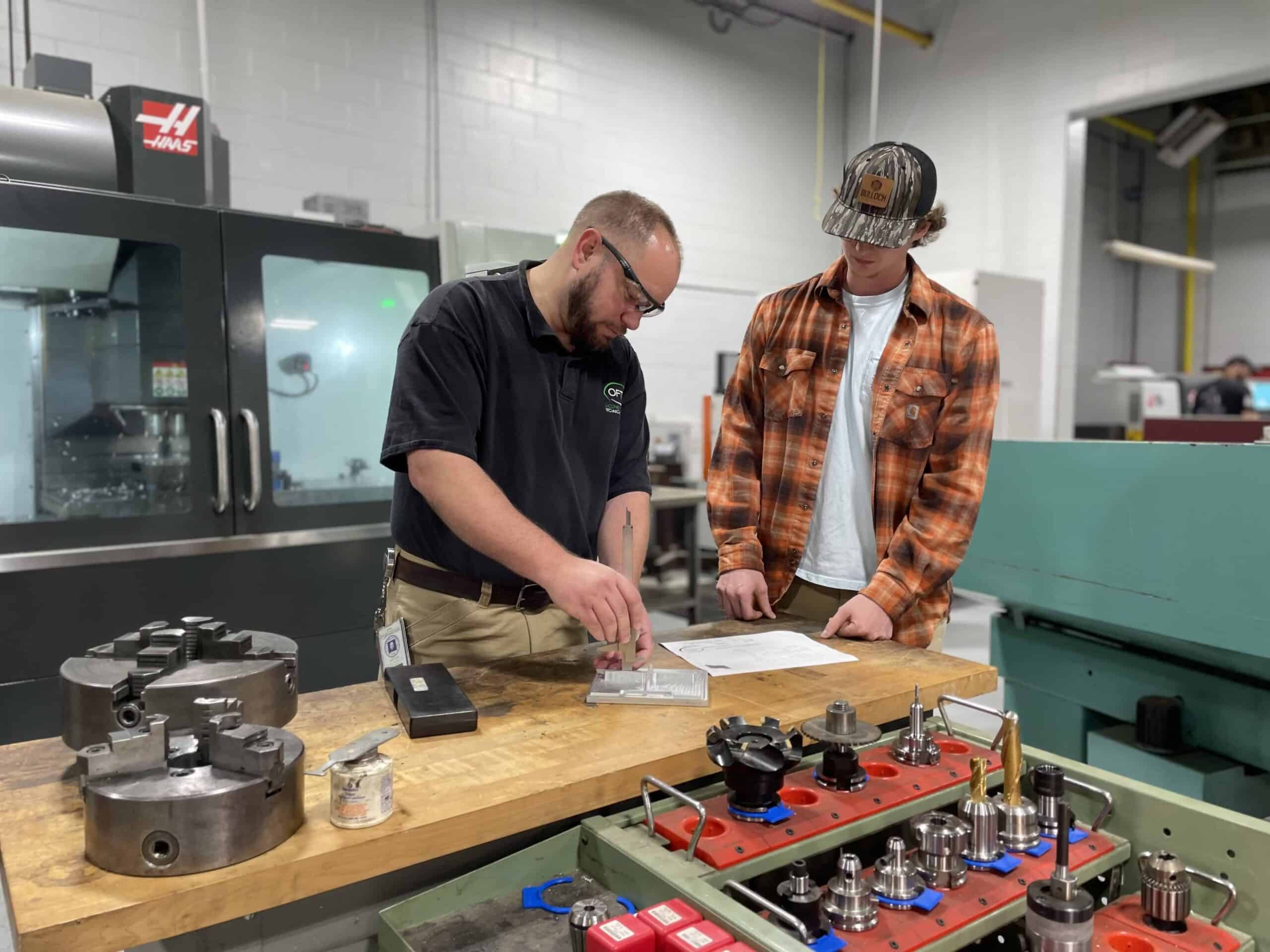
Basic Machining Operator Technical Certificate of Credit
Machine Tool Technology
Certificate of Credit
2 Semesters
The Basic Machining Operator technical certificate of credit prepares students for entry level machine shop employment by providing the knowledge and skills in basic machining operations. Instruction is provided in blueprint reading, lathe, mill, and surface grinder operation, mathematical functions, and an introduction to the machine tool industry.
The HOPE Career Grant is available to HOPE Grant-qualified students who enroll in select majors specifically aligned with industries in which there are more jobs available in Georgia than there are skilled workers to fill them. Learn More
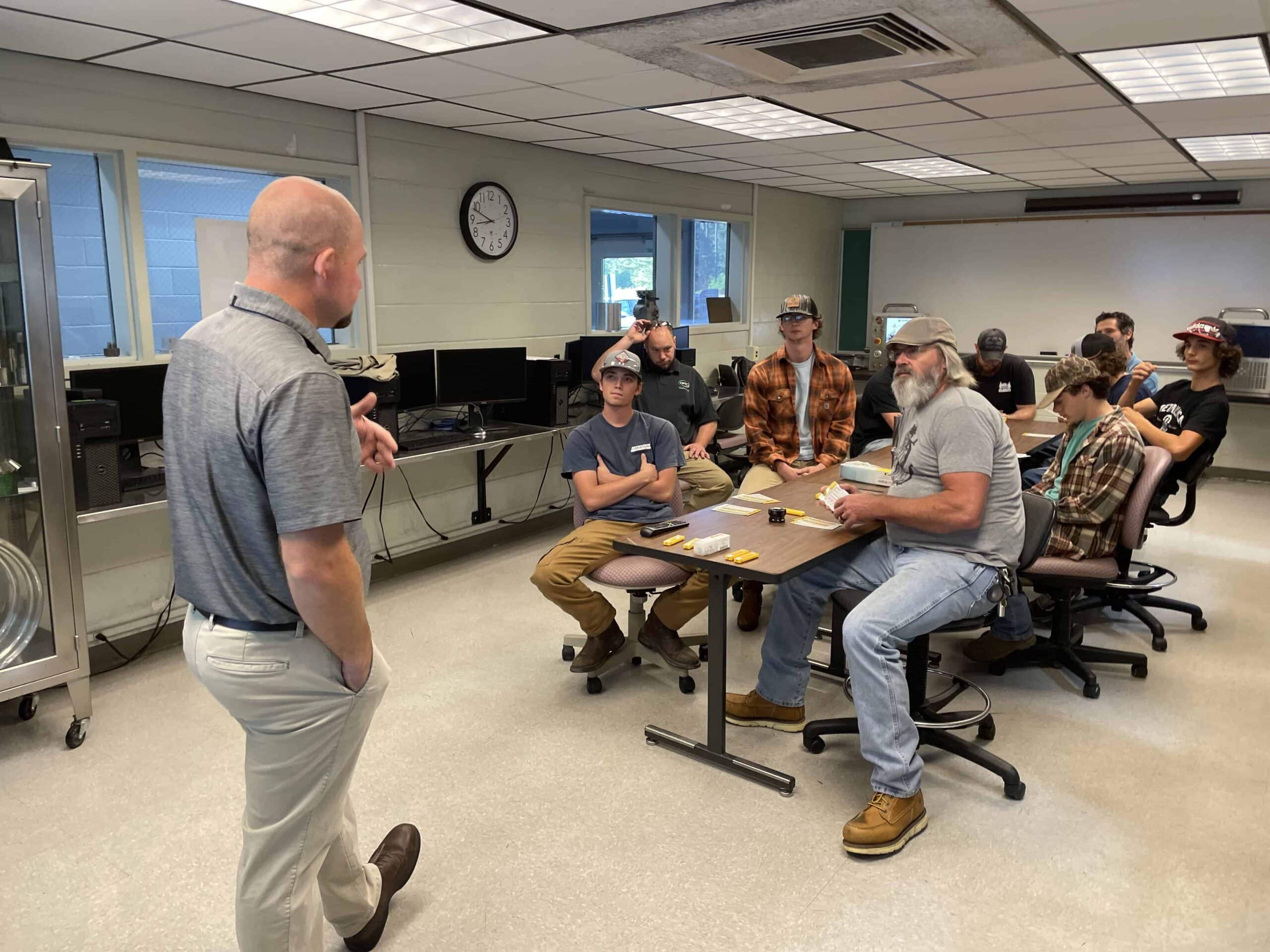
Basic Machinist Technical Certificate of Credit
Machine Tool Technology
Certificate of Credit
1 Semester
The Basic Machinist technical certificate of credit prepares students for a machine tool operator position with a machine shop or machine tool establishment.
The HOPE Career Grant is available to HOPE Grant-qualified students who enroll in select majors specifically aligned with industries in which there are more jobs available in Georgia than there are skilled workers to fill them. Learn More
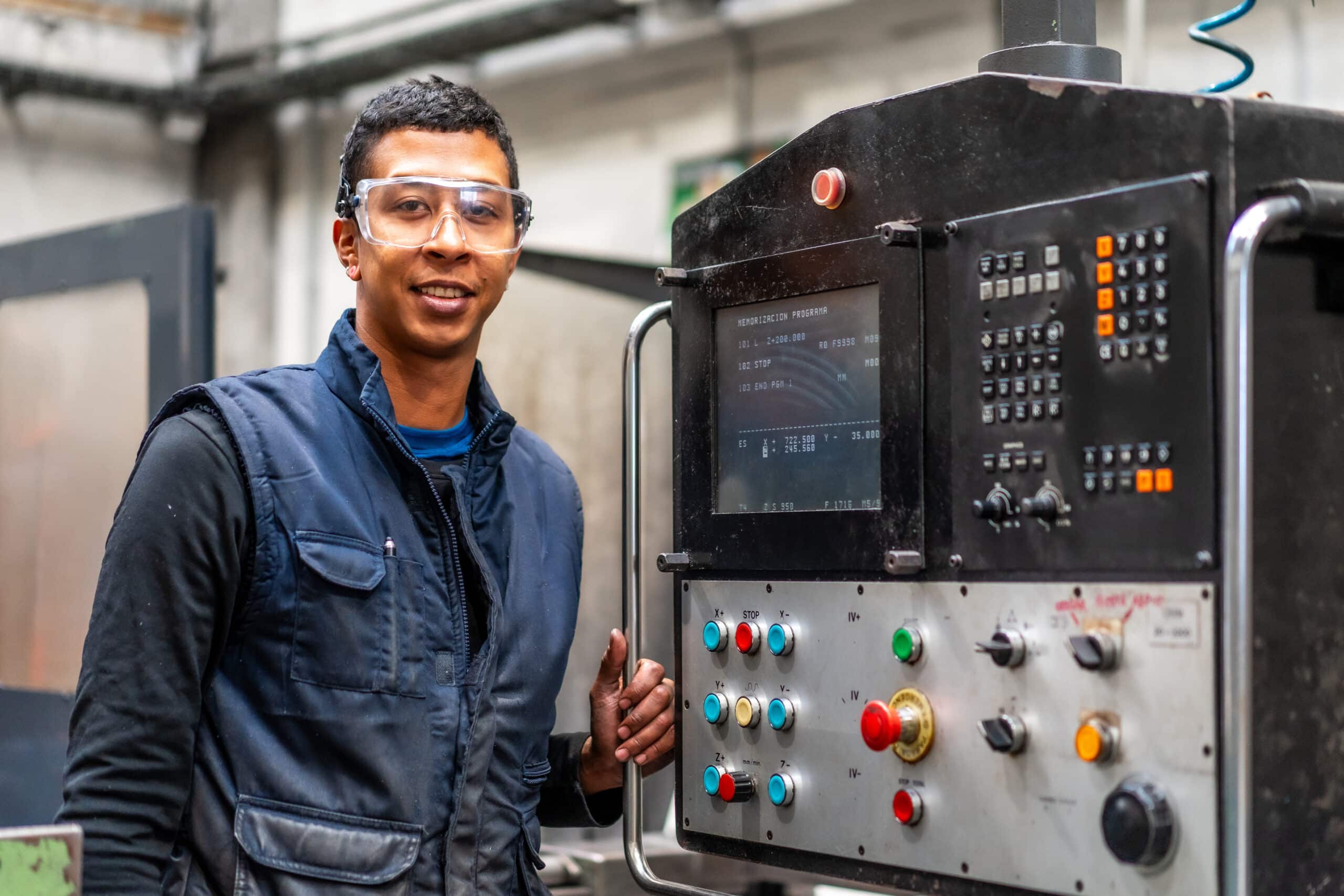
CNC Specialist Technical Certificate of Credit
Machine Tool Technology
Certificate of Credit
2 Semesters
The CNC Specialist Technical Certificate of Credit program provides training for graduates to gain employment as CNC machine tool technicians. Topics include CNC Fundamentals, mill and lathe manual programming, CNC practical applications, and CAD/CAM programming. The program emphasizes a combination of CNC theory and practical application necessary for successful employment.
The HOPE Career Grant is available to HOPE Grant-qualified students who enroll in select majors specifically aligned with industries in which there are more jobs available in Georgia than there are skilled workers to fill them. Learn More
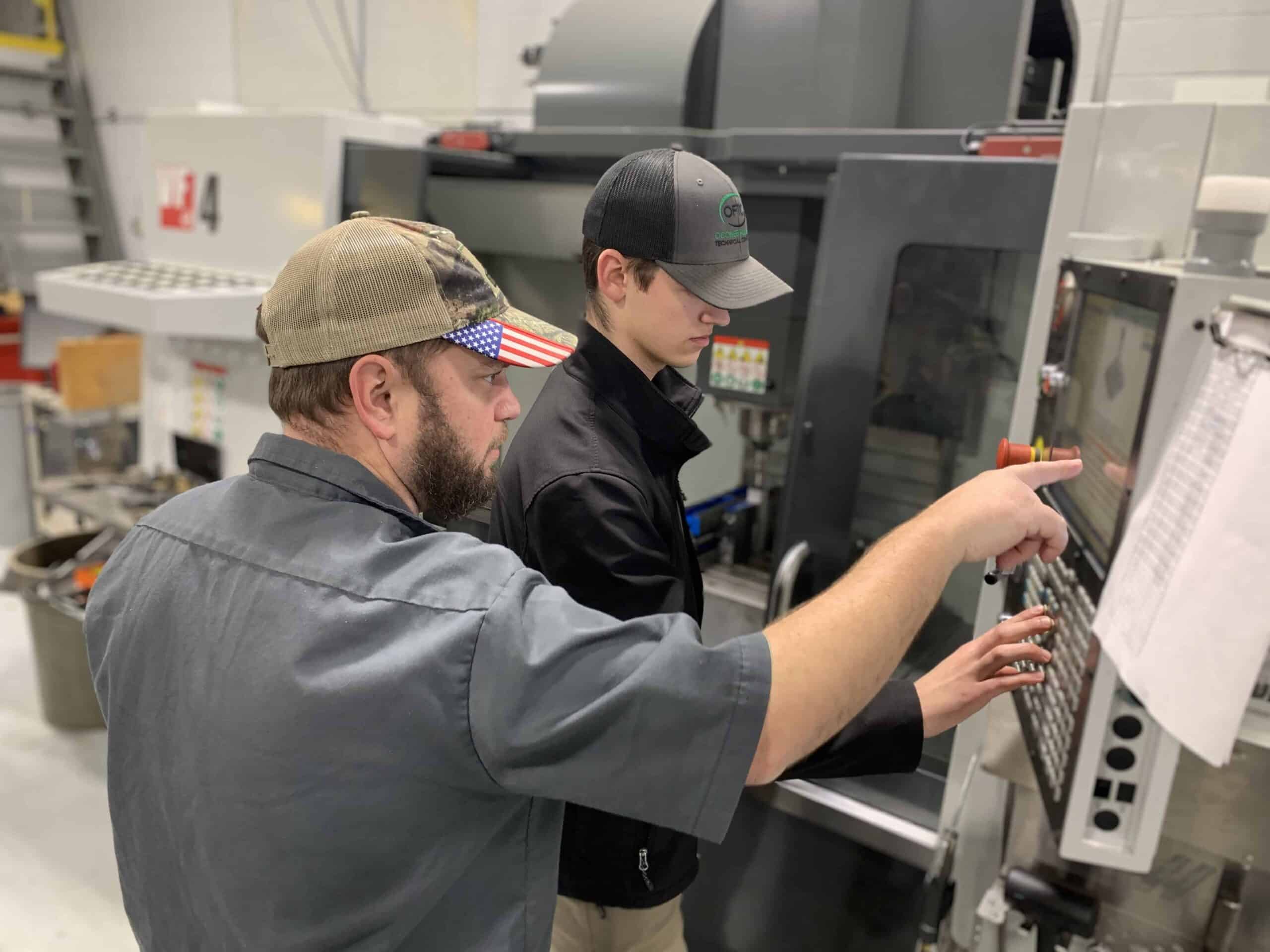
CNC Technology Diploma
Machine Tool Technology
Diploma
5 Semesters
The CNC Technology diploma program is a sequence of courses that prepares students for careers in the CNC technology field. Program graduates receive a CNC Technology diploma and have the qualifications of a CNC technician.
The HOPE Career Grant is available to HOPE Grant-qualified students who enroll in select majors specifically aligned with industries in which there are more jobs available in Georgia than there are skilled workers to fill them. Learn More
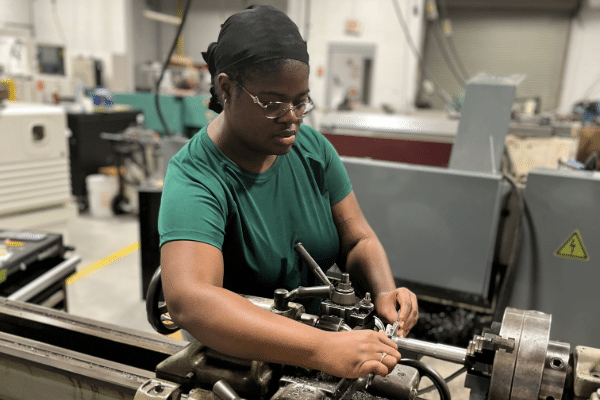
Lathe Operator Technical Certificate of Credit
Machine Tool Technology
Certificate of Credit
1 Semester
The Lathe Operator technical certificate of credit program prepares students to use lathes, lathe set up, and lathe tool grinding. Emphasis is placed on cutting threads, boring holes to precise measurements, and cutting tapers. Topics include an introduction to machine tool technology, blueprint reading for machine tool, and basic and advanced lathe operations.
The HOPE Career Grant is available to HOPE Grant-qualified students who enroll in select majors specifically aligned with industries in which there are more jobs available in Georgia than there are skilled workers to fill them. Learn More
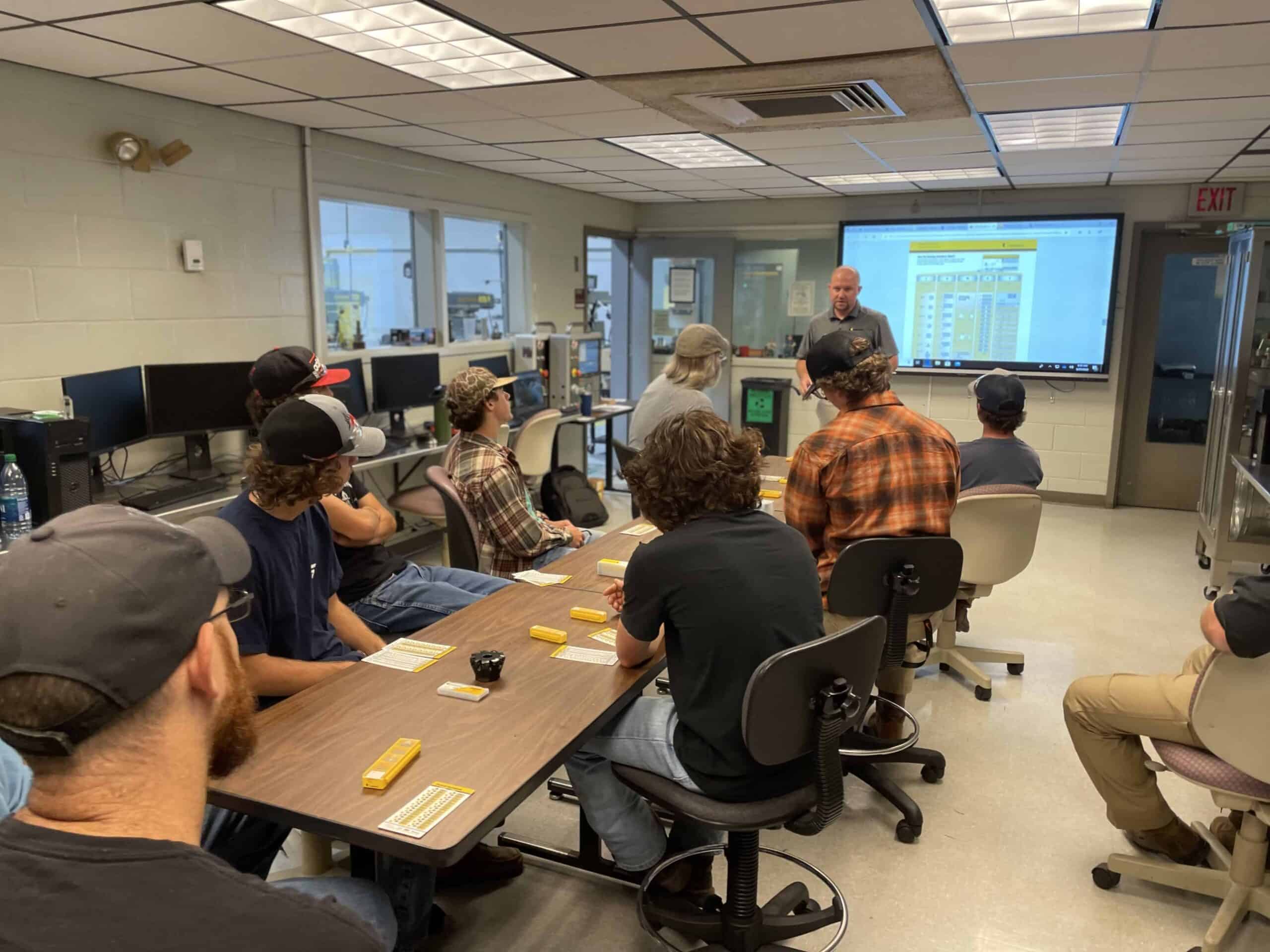
Metals Technician Technical Certificate of Credit
Machine Tool Technology
Certificate of Credit
1 Semester
The Metals Technician technical certificate of credit program is a series of courses that prepare a student for general knowledge of maintenance and repair of machinery by combining machine shop courses with welding courses. A student will learn to operate lathes and milling machines, as well as basic welding theory, safety, and operating procedures, and advanced techniques required for successful gas metal arc welding.
The HOPE Career Grant is available to HOPE Grant-qualified students who enroll in select majors specifically aligned with industries in which there are more jobs available in Georgia than there are skilled workers to fill them. Learn More

Mill Operator Technical Certificate of Credit
Machine Tool Technology
Certificate of Credit
1 Semester
The Mill Operator technical certificate of credit program teaches student to effectively operate milling machinery. Students become proficient in blueprint reading, general mathematical operations, and are provided the necessary knowledge and skills to obtain employment as a milling machinist.
The HOPE Career Grant is available to HOPE Grant-qualified students who enroll in select majors specifically aligned with industries in which there are more jobs available in Georgia than there are skilled workers to fill them. Learn More
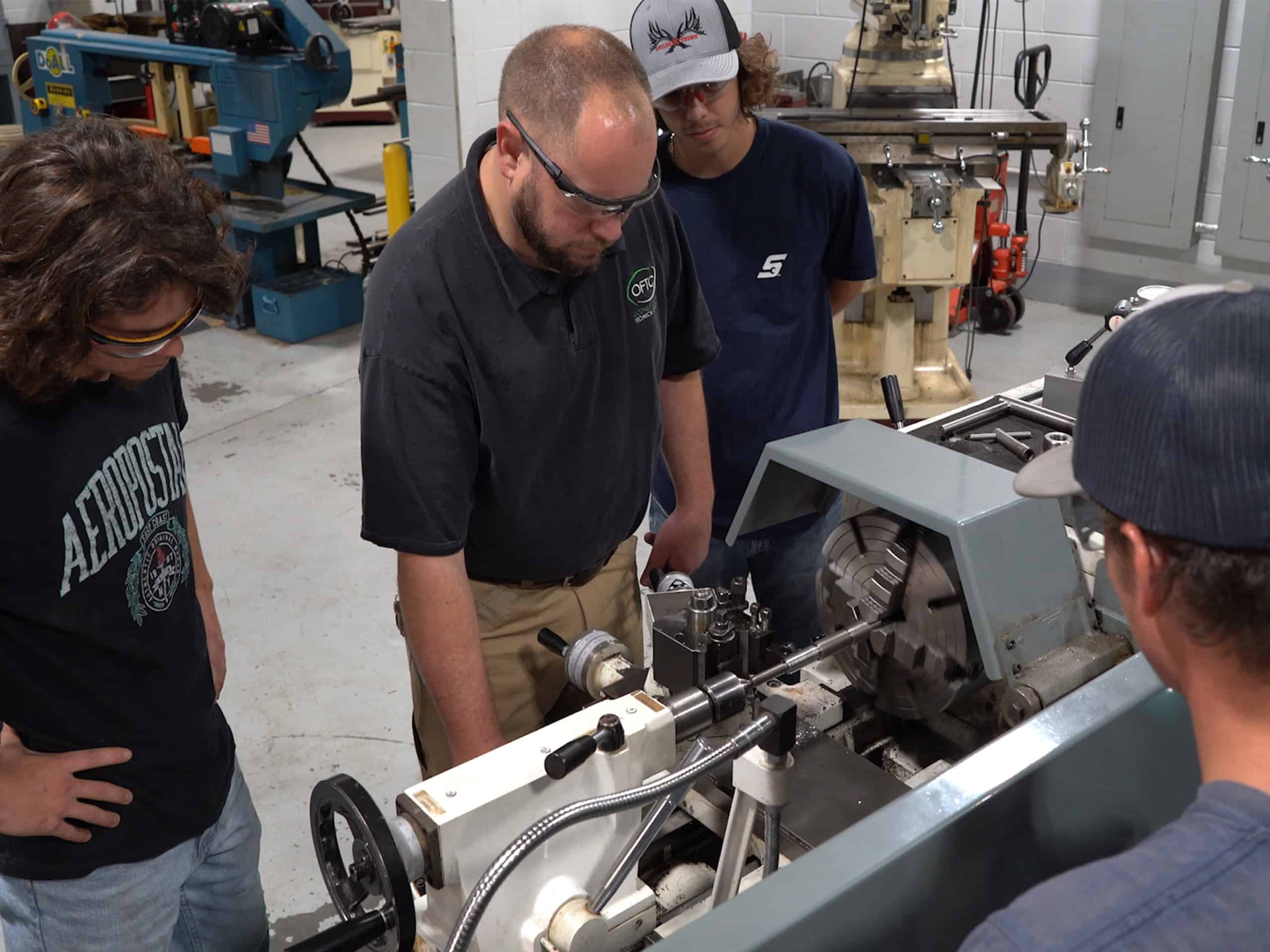
Precision Machining and Manufacturing Associate of Applied Science Degree
Machine Tool Technology
Associate of Applied Science Degree
5 Semesters
The Precision Machining and Manufacturing degree program is a sequence of courses that prepares students for careers in the machine tool technology field. The program emphasizes a combination of machine tool theory and practical application necessary for successful employment. Program graduates receive a Precision Machining and Manufacturing degree and have the qualifications of a machine tool technician.
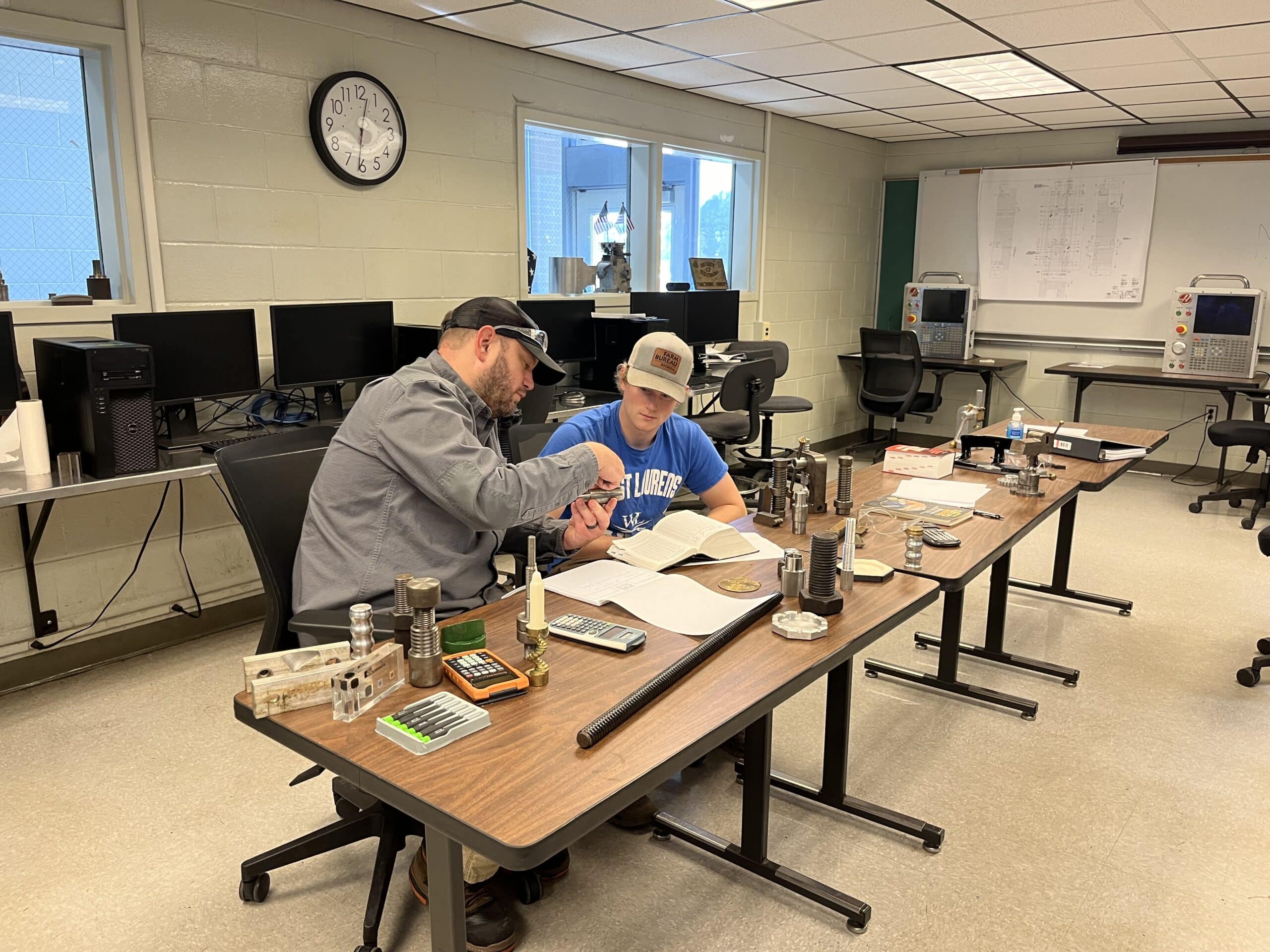
Precision Machining and Manufacturing Diploma
Machine Tool Technology
Diploma
4 Semesters
The Precision Machining and Manufacturing diploma program is a sequence of courses that prepares students for careers in the machine tool technology field. Program graduates receive a Precision Machining and Manufacturing diploma and have the qualifications of a machine tool technician.
The HOPE Career Grant is available to HOPE Grant-qualified students who enroll in select majors specifically aligned with industries in which there are more jobs available in Georgia than there are skilled workers to fill them. Learn More
Features
Job Stability & Security
The U.S. faces a real possibility of not having enough trained and qualified machinists for thousands of vacant machining jobs as the Baby Boomer generation continues to retire.
Little or No Cost to You
With the Pell Grant, Georgia’s HOPE Grant, HOPE Scholarship, and HOPE Career Grant (for students/programs who qualify) and other scholarship opportunities, many students graduate OFTC with little to no debt.
Tuition & Fees
With tuition at $107 per credit hour, total costs for Machine Tool Technology department programs range from:
- Tuition & Fees*: $2,862.00 – $8,856.00
- Books & Supplies*: $1,220.00
*Visit the OFTC Catalog to view each individual program and its full breakdown of tuition, fees, books, and supplies. Costs are estimated and are subject to change.
Advancement Opportunities
Experienced machinists may become CNC programmers, tool and die makers, or mold makers, or be promoted to supervisory or administrative positions in their firms. They can also open their own machine shops.
Locations
Oconee Fall Line Technical College has campuses throughout its 11-county service area. We look forward to your visit.
Online
Admissions
Our application process takes just a few minutes to complete, but we want to make sure you have the things you’ll need on hand to complete the application. We’re here to help if you have any questions!
Admissions Process
Your admissions application can be submitted online with your $25.00 non-refundable application fee and takes just a few minutes to complete.
- Submit a completed application and application fee.
- Submit official high school transcript, GED transcript, or official college transcripts, if applicable.
- Submit official entrance score on a validated assessment instrument, if applicable. Visit the OFTC Catalog Program Page to view each individual program and its required minimum scores.
- Complete the FAFSA (Free Application for Federal Student Aid) and HOPE applications online using OFTC School Code: 031555.
NOTE: The College may accept transfer credit for other courses according to the College’s transfer policy.
General Requirements
Be at least 16 years of age.
Additional admissions requirements unique to each program are listed on each individual program page in the OFTC Catalog.
Need More Info?
For more information about any of these programs, contact a program advisor:
Dublin Program Advisor
For additional information on admission to OFTC, contact the Office of Admissions:
Sandersville Office of Admissions
Dublin Office of Admissions
Learning Format
Students can enter a Machine Tool Technology program program any semester — because when you are ready to start on the path to a new career and change your life, there’s no reason to wait.
Classes are offered in a variety of formats: on campus, blended, online asynchronous, and synchronous technology.
On Campus
These are courses that are taught primarily in the classroom or lab with less than 50% of instruction online. On campus courses may include lecture, labs, internships, clinicals, and other in-person instructional modalities.
Blended
Blended courses are distance learning courses with the majority of the course content, activities, and interactions occurring online but may require students to come to campus for specific assignments, activities, or events.
Online Asynchronous
These are courses that are taught fully online asynchronously with course content, activities, and interactions occurring entirely online. This delivery method does not require students to be online at a specific date or time, and students may participate in class activities and complete course assignments asynchronously. Online asynchronous courses require proctored events.
Synchronous Technology
OFTC also utilizes synchronous technology to offer courses via distance education means. The course is taught on one campus and then broadcast simultaneously to a classroom on a different campus that is monitored by a class proctor.
Flexible Schedule
We want you to get the most out of college and understand the pressure it adds to your life. At OFTC you can achieve your career goals and fit college into your lifestyle. We offer small class sizes and flexible scheduling.
Courses for our programs are offered during the morning, afternoon, and evenings – plus many are online where you can do your work any time of day.
And the personalized hands-on attention you receive in a small classroom setting allows you to get individualized support, focus and feedback from your instructors. Your instructors will get to know you and help you build the foundation and confidence needed for success in your field.
Apply TodayPaying for College
At OFTC, we realize that many students require financial assistance to achieve their academic goals. We’ll work with you to help you obtain financial aid to assist you in funding your education. We’re committed to helping you find ways to pay for this life-changing investment.
With the Pell Grant, Georgia’s HOPE Grant, HOPE Scholarship, and HOPE Career Grant (for students/programs who qualify) and other scholarship opportunities, many students graduate OFTC with little to no debt.
Financial Aid
OFTC offers several financial aid opportunities that can help you pay for college. Most students apply for federal and state aid, including the Pell Grant, HOPE Scholarship & Grant, and HOPE Career Grant.
OFTC students can also apply for scholarships through the OFTC Foundation and various businesses and civic-sponsored organizations.
Contact the Office of Financial Aid or visit OFTC’s Financial Aid web page to learn more about grants, scholarships and Federal Work Study to help fund your education.
Sandersville
Dublin
Georgia awarded over $934 million in scholarships in AY24
of OFTC students have some form of Scholarship in AY24
OFTC students received over $6.6 million in financial assistance in FY25
More than 75% of OFTC students received some sort of Financial Aid in AY24
Contact
Sandersville
Dublin
Tuition & Fees
With tuition at $107 per credit hour, total costs for Machine Tool Technology department programs range from:
- Tuition & Fees*: $2,862.00 – $8,856.00
- Books & Supplies*: $1,220.00
*Visit the OFTC Catalog to view each individual program and its full breakdown of tuition, fees, books, and supplies. Costs are estimated and are subject to change.
New Price Calculator
You can also use the Net Price Calculator to get estimated net price information based on what similar students paid in a previous year.
Career Outlook
The Precision Machining and Manufacturing industry lets you work with advanced technology to create products for aerospace, robotics, automotive, medical devices, and more. With experience and education, you can advance into machine programming or engineering roles.
BLS.GOV
Machinist and Tool and Die Makers
- 2024 Median Annual Pay: $57,700
What does this mean to you?
If you enjoy working with technology and hands-on tools, a career as a machinist offers training for well-paying, in-demand jobs. You’ll learn to operate, program, and maintain precision equipment, opening doors to a stable and rewarding future in high-tech manufacturing.
Learn More
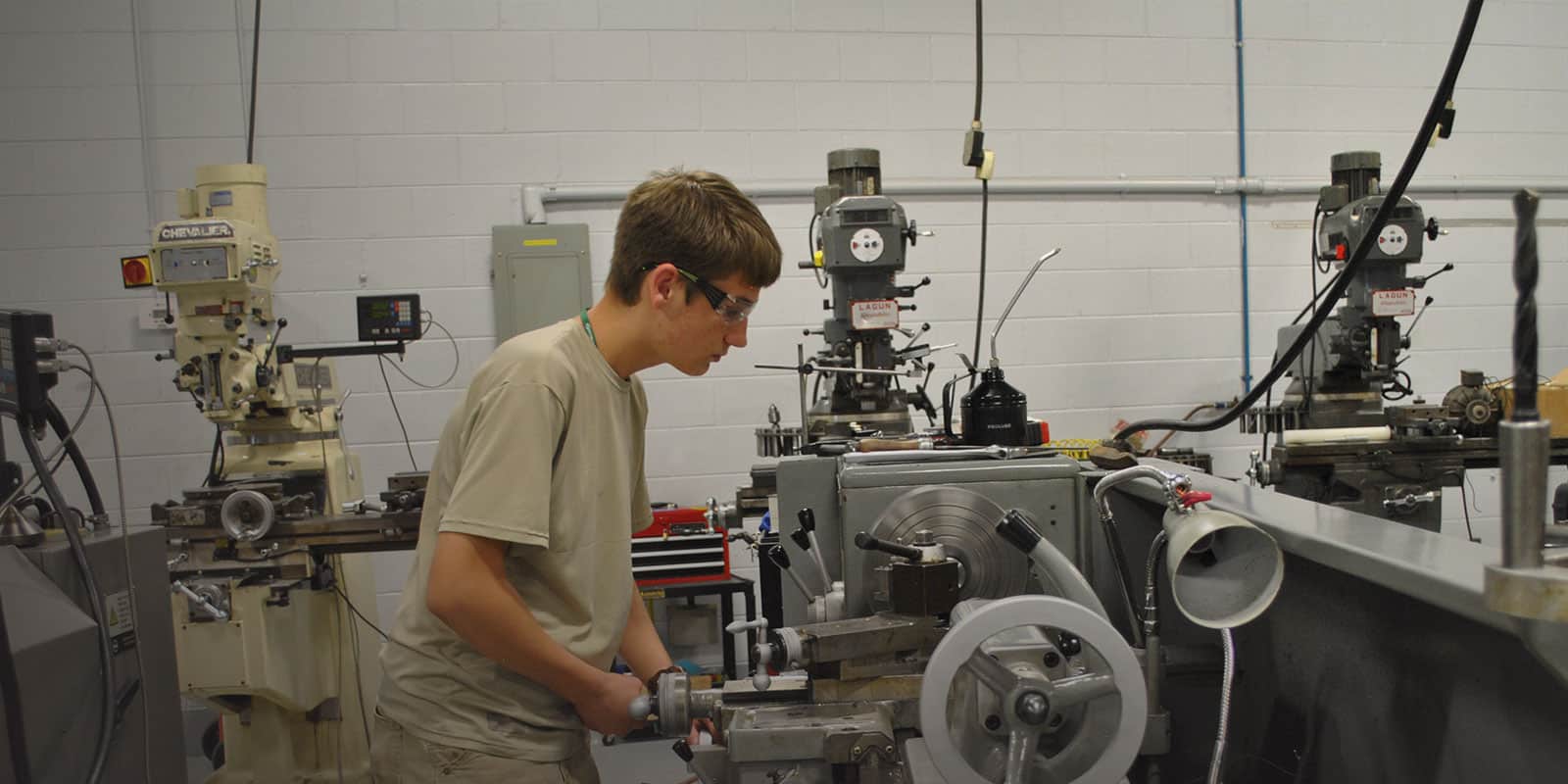
job placement rate for OFTC graduates within the graduation year (AY23)
in-field job placement rate for OFTC graduates within the graduation year (AY23)
of OFTC students enrolled are First Generation college students (AY24)
Program Benefits
Skills Learned
- Read detailed drawings or files, such as blueprints, sketches, and those for computer-aided design (CAD) and computer-aided manufacturing (CAM)
- Set up, operate, and disassemble manual, automatic, and computer numerically controlled (CNC) machine tools
- Align, secure, and adjust cutting tools and workpieces
- Monitor the feed and speed of machines
- Turn, mill, drill, shape, and grind machine parts to specifications
- Verify that completed products meet requirements
Job Titles
- Machinist
- Tool and die maker
- Metal worker
Diverse Settings
- Machine shops
- Machinery manufacturing
- Transportation equipment manufacturing
- Employment services

"OFTC's Machine Tool program gave me the knowledge, skills, and confidence to start and excel in a career as a machinist. It is a great honor and privilege to me to be able to come full circle. Now ten years later I am teaching the program that got me started on this path."
